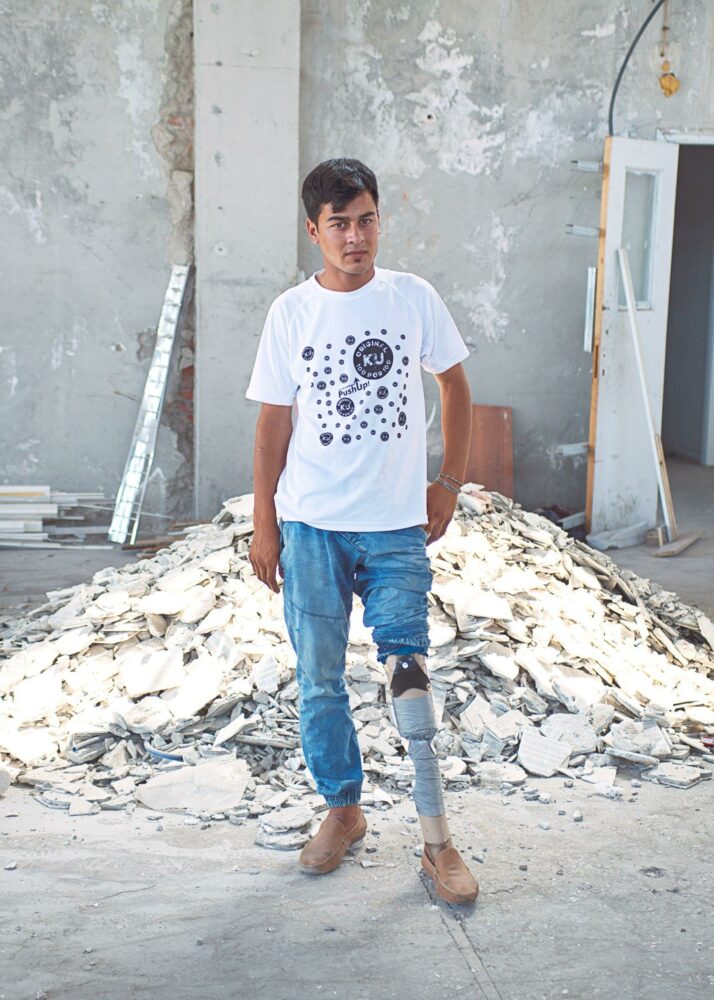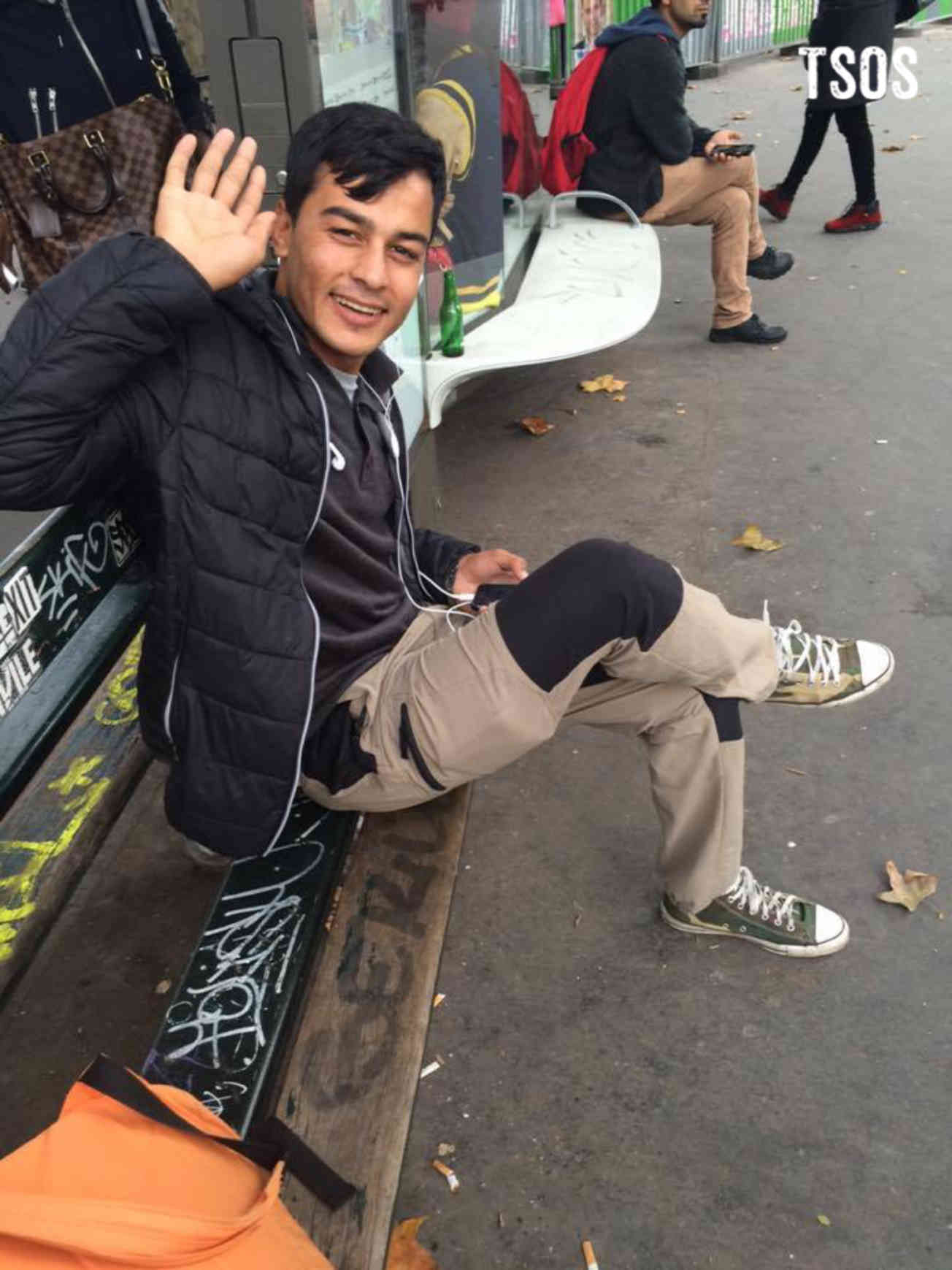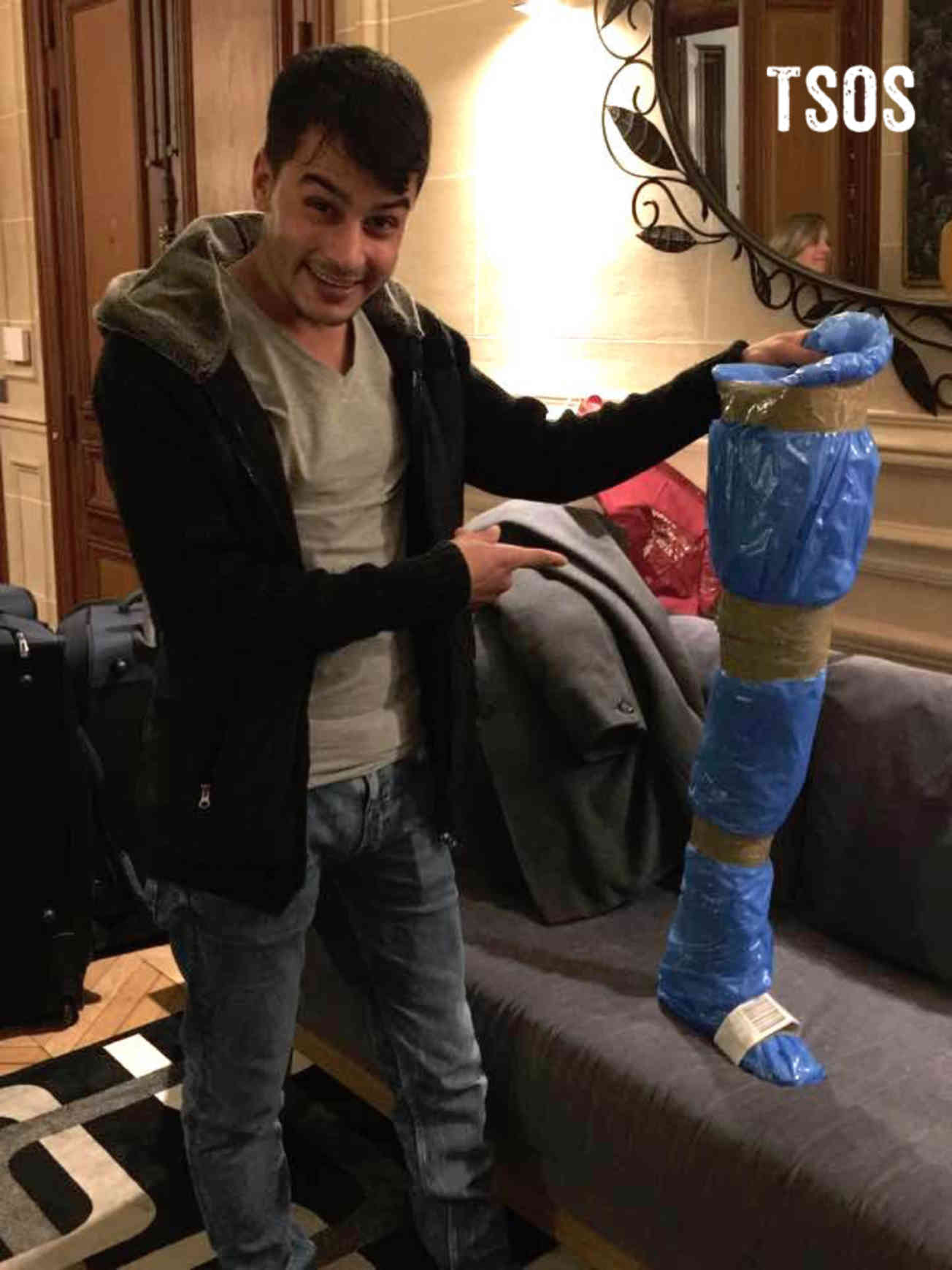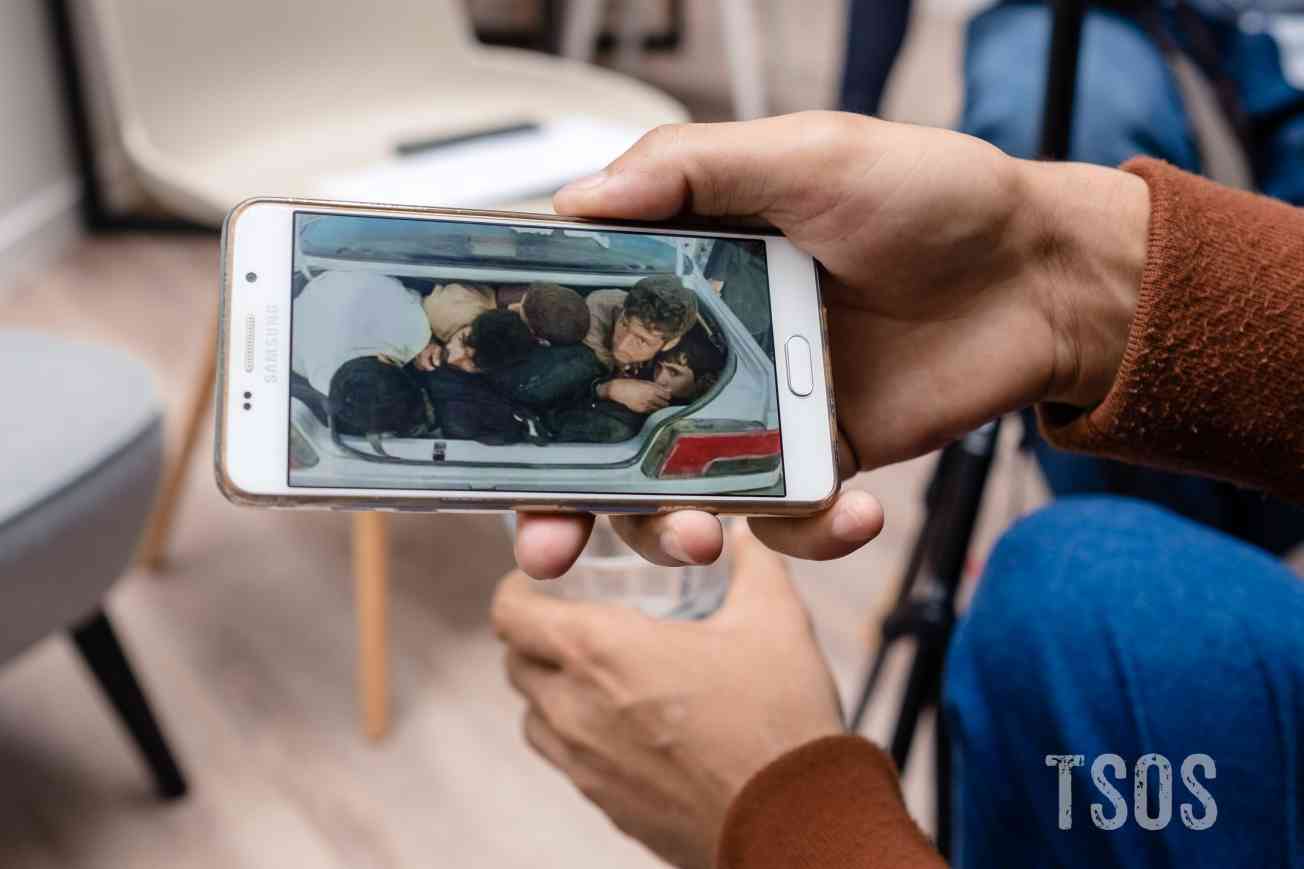The Journey: I Crossed the Mountainous Border
I kept thinking, "I will be dead; I'm not going to make it!"

At eighteen, fate placed Ali and his family in the center of hostilities in northern Afghanistan. Warring militant factions killed hundreds of people in his village. Ali helped identify and bury dozens of his friends and neighbors in a mass grave. Though he walked on an old, second-hand prosthetic leg after losing his left leg in an explosion a few years earlier, Ali decided to undertake the long journey out of his country to save his life. He joined a group of families who were also fleeing the violence. Two of the mothers were traveling without their husbands who had gone ahead to find places to stay. Along the way, Ali encouraged and protected them, and sometimes carried their children. They traveled together by bus, on foot, and in smugglers’ cars.
We spent days and nights in the mountains and blocked on the borders. I crossed the mountainous border between Afghanistan and Pakistan walking with my handicap. Then it took us another sixteen hours to cross the border between Pakistan and Iran, also in very high mountains of more than 2500 meters. The Iranian police were killing people on the borders. We saw people in the mountains who were dead—some from hunger, some were shot.
The rough terrain caused Ali’s plastic leg to break several times. He repaired it with sticks and duct tape but by the time he reached Greece—a journey of 4,900 km (3,045 miles)—he was in great pain.
Ali made it to Greece just as the Balkan route closed, which blocked his progress to central Europe. He stayed in two refugee camps—one on the island of Lesbos, the second near Athens where he quickly formed friendships with other residents and volunteers, chief among them Bilal, another Afghan refugee. Bilal accompanied Ali to Athens the day he was fitted with a new, state-of-the-art prosthetic leg, which was purchased by a generous donor. I was happy in this camp. I almost forgot how hard life can be until the day I lost my best friend. Bilal’s English was very good. He was working with volunteers in the camp’s school. One day he left to teach English. He told me he planned to swim to an island afterward. I don’t know what happened. He lost his life. Bilal died in the water. After that, I left Greece. I couldn’t stay.
In total, this smuggler’s car transported seventeen people. We each paid 600 Euros. But the European borders were closed. Bulgaria was closed. Everything from Greece was closed. I hid under a truck [a semitrailer truck] when the driver was off his shift. I lay underneath on top of a cross beam and waited for five or six hours before he came back. He didn’t see me. Then the truck began moving. I lay under it for thirty-six hours—no food, little water. It was very, very dangerous. I kept thinking, “I will be dead; I’m not going to make it!”
I spent fifteen days in Italy then went to France with a smuggler. When I arrived in Paris, I felt completely lost. I asked a Frenchman how to get to Jaures Metro Station. (I heard that this was where the refugees were.) When I arrived there, I was completely shocked. I saw more than 3,000 refugees who slept and lived under the bridges, on the streets, wherever they could basically. . . . Because of my leg, I was a lot more vulnerable; it was very difficult for me to sleep under the bridge, especially because it was very cold. My artificial limb broke down and injured my leg.


Knowing his new prosthetic, which he had used briefly in Greece was worth over ten thousand dollars, Ali had left it behind rather than risk having it stolen and sold by smugglers. He wore his old one during the months he lived on the streets in Paris among the other refugees. He had only a thin jacket to keep him warm in the soggy, winter weather.
Eventually, volunteers found him a safe place to stay and arranged for his new prosthetic to be transported from Greece. Currently, Ali has an apartment, speaks French, and reaches out to his fellow displaced countrymen.
Although pain has been his constant companion, Ali’s solution has been to reach out to and carry the weight of others.
Having lost his left leg as a teenager when a car bomb exploded next to him while on his way to school in Afghanistan, Ali painfully walked using an old, abandoned prosthetic leg. When local militants attacked his village, Ali helped identify and bury 355 friends and neighbors in a mass grave. He and a few remaining family members felt compelled to leave. This meant making the grueling climb over two mountain ranges, during which he sometimes carried his five young nieces and nephews on his back.
His plastic leg broke several times, but he resourcefully repaired it with sticks and duct tape.
Once settled into a camp in Greece, Ali made himself useful to others he recognized were in need. As one of our team members described him:
Ali was friendly, calm, and loved by all in the camp. He is a natural leader, a mature and noble man with the wisdom of someone five times his age. He is a survivor and a leader. He is calm in the face of peril, compassionate in times of tragedy.
In Athens, for instance, at the end of the first phase of his exhausting journey to safety, he befriended a suicidal fellow refugee — a young mother — who owes her survival to his willingness to bear the weight of her anguish.
When tragedy struck him again—when his best friend in the camp drowned off the shores of Greece—Ali set off alone for freedom. He could no longer risk remaining behind European borders that were closing quickly and definitively.
One afternoon, our team got word that Ali had made his way to France smuggled on the cross beam of a tractor trailer. In Paris, for a time, he lived in a tent under a bridge or otherwise roamed the city streets, destitute. However, TSOS volunteers and their Parisian contacts found Ali a safe place to stay and provided him with a new, state-of-the-art prosthetic leg. Today, Ali lives in the heart of Paris, masters French well enough to speak publicly alongside our team members about his experience integrating in France, and has many friends whom he helps to understand complex French asylum laws. His latest passion gives “carrying weight” a literal meaning: Ali trains regularly with weights and encourages other refugee friends to do the same to remain vigorous and healthy as they find their way forward.

Our team members obtain informed consent from each individual before an interview takes place. Individuals dictate where their stories may be shared and what personal information they wish to keep private. In situations where the individual is at risk and/or wishes to remain anonymous, alias names are used and other identifying information is removed from interviews immediately after they are received by TSOS. We have also committed not to use refugee images or stories for fundraising purposes without explicit permission. Our top priority is to protect and honor the wishes of our interview subjects.